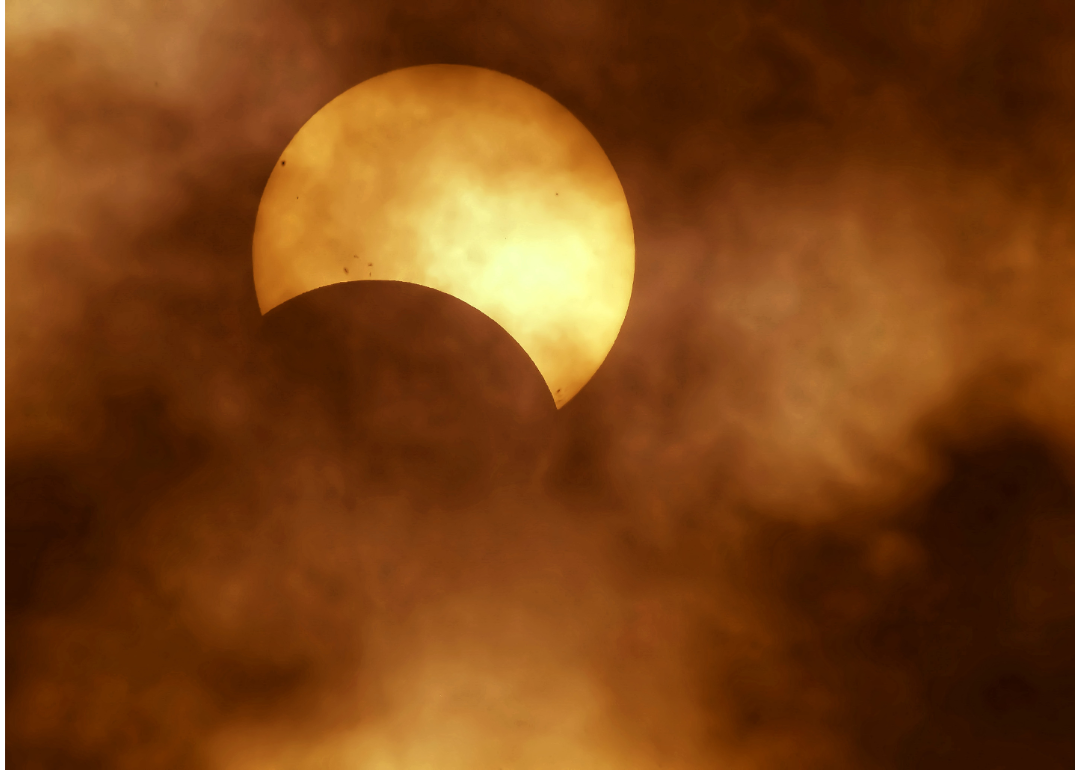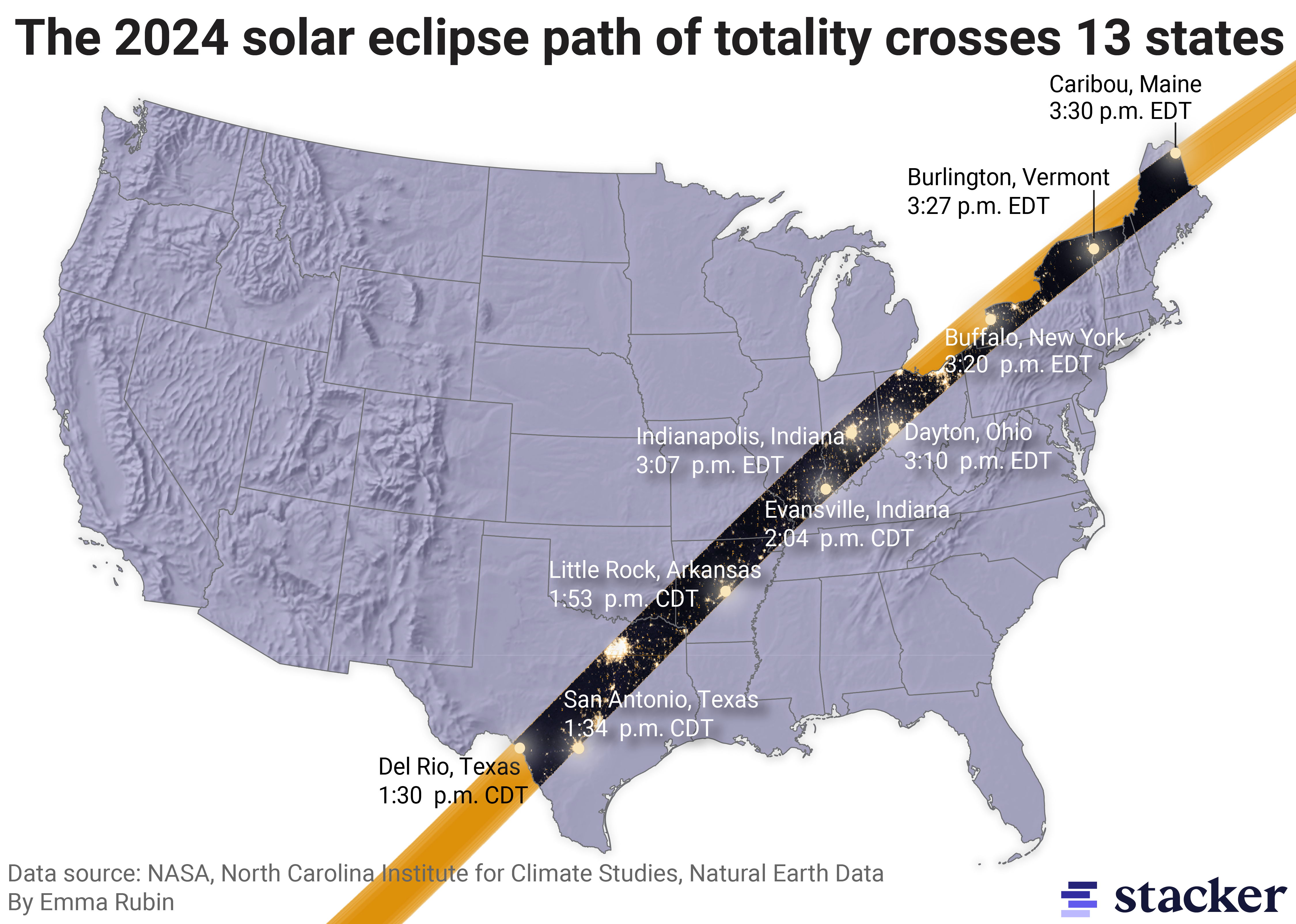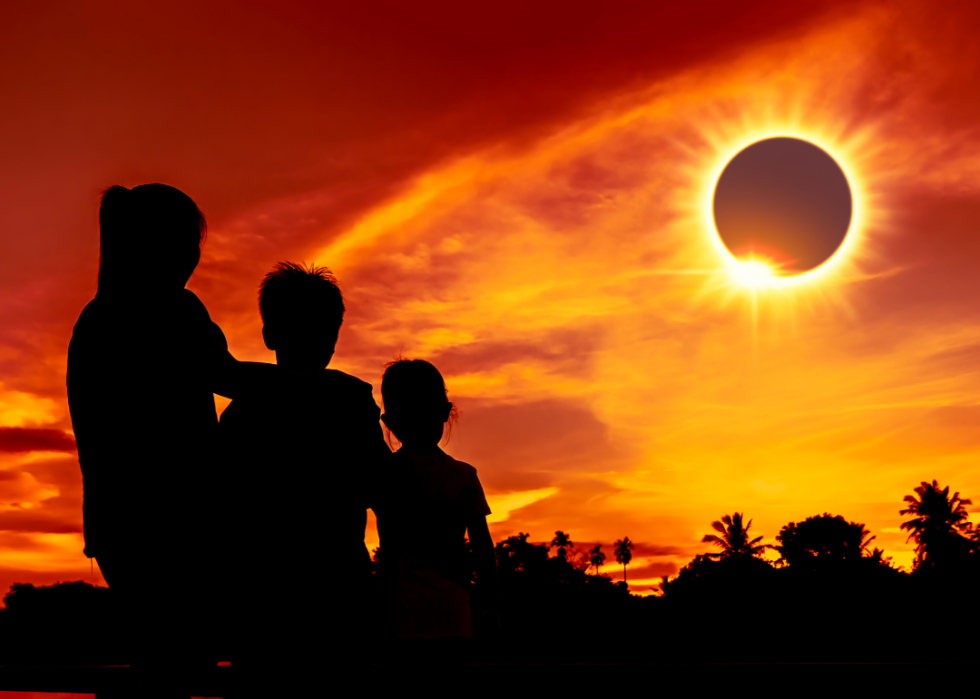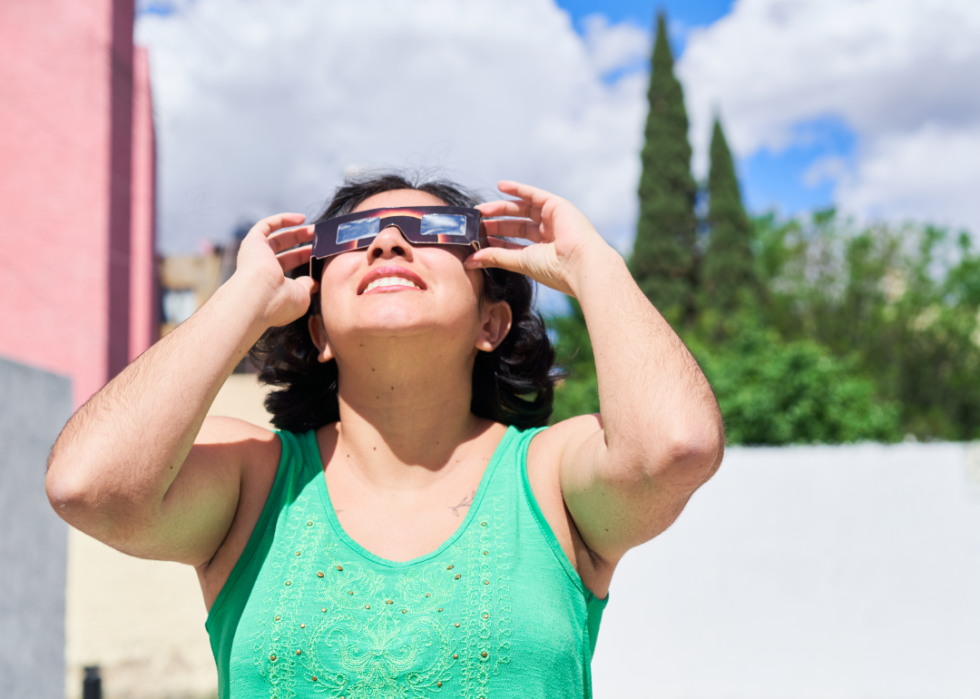
Where to see the eclipse in Texas
The total solar eclipse on April 8 won't just be a wondrous astronomical event—it's projected to be one of the biggest drivers of travel in the United States this year.
The Great American Eclipse expects between 1 and 4 million people to travel to see the eclipse; that doesn't include the 31 million Americans who live in the path of totality, the 115-mile-wide stretch where you'll be able to see the eclipse in full, spanning from Mexico to Maine. "It will likely be the most-viewed astronomical event in American history," Michael Zeiler, eclipse cartographer and co-founder of Great American Eclipse, said in a statement.
Part of what's driving the popularity of eclipse travel this year is its timing—the busiest week for spring break travel happens to be the week the eclipse will occur. Others who aren't on school schedules may be watching the eclipse due to scarcity; according to NASA, the next total solar eclipse visible in the contiguous United States won't occur until August 2044.
Many people plan a trip to visit family and friends who live in the path of totality. Travelers who aren't seeing loved ones are expected to visit an area in the path of totality that's closest to their home, according to the Great American Eclipse. Texas alone expects a million additional visitors to witness the rare event.
If you plan to travel for the total eclipse, prepare to fly into and out of busy airports. Once you've reached your destination, look for nearby eclipse events. Many cities are planning eclipse block parties, astronomy lectures, and more. Airlines like Delta and Southwest are even planning special eclipse flights. Finally, make sure you have eye protection to view the eclipse safely. It's unsafe to do so through lenses like cameras, so finding proper eyewear ahead of time is a must.
Stacker used data from the North Carolina Institute for Climate Science to highlight weather projections in places in Texas in the path of totality during the 2024 total solar eclipse.

Mapping the path of totality across the US
This article predominantly highlights cities with available weather data, but the path of totality expands beyond that scope.
Smaller towns near areas on this list or elsewhere on the path of totality can also be an ideal place to view this rare event. Because this article relies on available weather station data, it does not include every city and town that the eclipse's path points to.
Read on to find out where—and when—you should be able to see the total eclipse on April 8 in Texas.

Waco, Texas
- Time of totality: 1:40 p.m. CDT
- Length of totality: 4 minutes, 19 seconds
- Chance of viewability: 63.9%
- Historic cloud conditions:
--- Clear 49.8% of the time
--- Few clouds 7.7%
--- Partly cloudy 6.2%
--- Mostly cloudy 10.6%
--- Overcast 25.8%

Hondo, Texas
- Time of totality: 1:33 p.m. CDT
- Length of totality: 3 minutes, 32 seconds
- Chance of viewability: 70.3%
- Historic cloud conditions:
--- Clear 53.3% of the time
--- Few clouds 9.8%
--- Partly cloudy 9.0%
--- Mostly cloudy 10.4%
--- Overcast 17.6%

Del Rio, Texas
- Time of totality: 1:30 p.m. CDT
- Length of totality: 3 minutes, 13 seconds
- Chance of viewability: 74.1%
- Historic cloud conditions:
--- Clear 64.4% of the time
--- Few clouds 6.1%
--- Partly cloudy 4.6%
--- Mostly cloudy 6.8%
--- Overcast 18.2%

Dallas/Fort Worth, Texas
- Time of totality: 1:42 p.m. CDT
- Length of totality: 2 minutes, 58 seconds
- Chance of viewability: 48.1%
- Historic cloud conditions:
--- Clear 19.0% of the time
--- Few clouds 14.3%
--- Partly cloudy 13.1%
--- Mostly cloudy 22.9%
--- Overcast 30.8%

San Antonio, Texas
- Time of totality: 1:34 p.m. CDT
- Length of totality: 1 minutes, 14 seconds
- Chance of viewability: 45.8%
- Historic cloud conditions:
--- Clear 17.1% of the time
--- Few clouds 15.3%
--- Partly cloudy 10.6%
--- Mostly cloudy 23.2%
--- Overcast 33.7%
This story features data reporting by Emma Rubin, writing by Sheeka Sanahori, and is part of a series utilizing data automation across 9 states.



